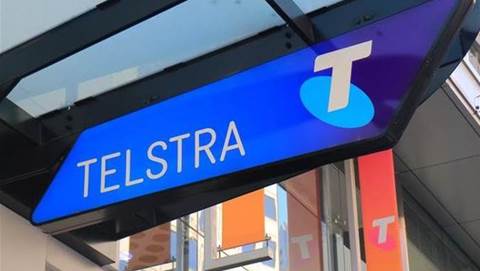Australia's second and third largest telcos Optus and Vodafone are arguing for the Government to restrict market leader Telstra from increasing its regional advantage in the upcoming 1800MHx spectrum auction.
.jpg&h=420&w=748&c=0&s=0)
The ACCC was earlier this month directed by the Communications department to advise on whether the Government should introduce limits to the ACMA's November auction for licences covering parts of the 1800MHz band in regional Australia.
In submissions published today, Optus and Vodafone argued for caps to be placed on the amount of spectrum any one operator can licence - calls also voiced by miner Rio Tinto.
The telcos argued that their rival Telstra would be able to further increase its advantage in regional areas "to the detriment of end users" should competition limits not be imposed.
"There is currently a significant inequality of 1800 MHz holdings in regional areas," Optus wrote [pdf].
"Telstra as the incumbent beneficiary of this (owning 100 percent of the existing 1800 MHz spectrum licences in regional areas) also has had a significant first-mover advantage in the deployment and utilisation of this spectrum band."
"Telstra’s excess concentration of spectrum holdings within this geographic area distorts incentives for competitive investment to the detriment of regional mobile consumers," Vodafone wrote [pdf].
"Competition limits must be set for the allocation of regional 1800 MHz spectrum to promote the long-term interests of end-users by promoting competition in the regional mobile services market."
Vodafone argued that significant imbalances in one telco's spectrum holdings would result in capacity constraints for others with smaller holdings.
"If a [mobile network operator] is capacity constrained, its ability to compete is reduced and there is less competitive pressure in the market as a whole."
Vodafone recommended two limits to the auction - an in-band limit for the 1800MHz and a total holdings limit, the first which takes into account existing holdings in the 1800MHz band, and the second which considers total holdings across all bands.
It did not specify caps.
Optus said the limit should be 20 MHz paired and agreed the ACCC should consider existing 1800MHz holdings in a telco's auction bid.
It said such a cap would provide a level playing field, enable individual telcos to acquire the optimal channel size for LTE, and provide non-telcos the opportunity to acquire spectrum.
Failure to cap licence purchases would give Telstra the opportunity to "acquire more spectrum than it requires to provide efficient network capacity," Optus argued.
"It is possible that Telstra may acquire excess 1800 MHZ spectrum for the purpose of preventing the other MNOs from offering competitive network services in the auction areas," the telco wrote.
Currently, Telstra is the only telco holding 1800MHz spectrum licenses in regional areas.
Optus last October started offering 4G services in regional areas as part of the ACCC's early access regime for 700MHz.
Telstra hits out against limits
Telstra, however, argued [pdf] that it was up to each telco to determine how much they were willing to spend on their network.
It said competition limits weren't necessary because there were no monopolisation risks present in the proposed auction.
The 1800MHz spectrum is substitutable with other bands and all telcos had existing spectrum allocation in either 1800MHz or the substitutable bands, Telstra argued.
It also said all telcos had enough money to pay market price for any spectrum in the auction, and there was no evidence of existing anti-competitive hoarding of spectrum.
"While the quality of service and coverage in specific areas varies between operators, this is the result of discretionary investment, based on the network’s operators’ perceptions of demand, return and customer strategy," Telstra wrote.
"The variation in quality of service and coverage does not prevent competition between the [mobile network operators] in regional locations and each operator is free to invest in network coverage and quality if they wish to enhance their product offering in any particular location."
The telco said competition limits would "significantly distort competitive demand in the auction process" and reduce the likelihood of "fair and equitable market prices" for the allocated spectrum.
"This may also result in spectrum being allocated to parties who value it less or may not have the sufficient capacity to invest in developing networks and new technologies," it said.
"These factors are likely to result in lower returns to taxpayers in the short term and reduced benefits for consumers in the long term."






















